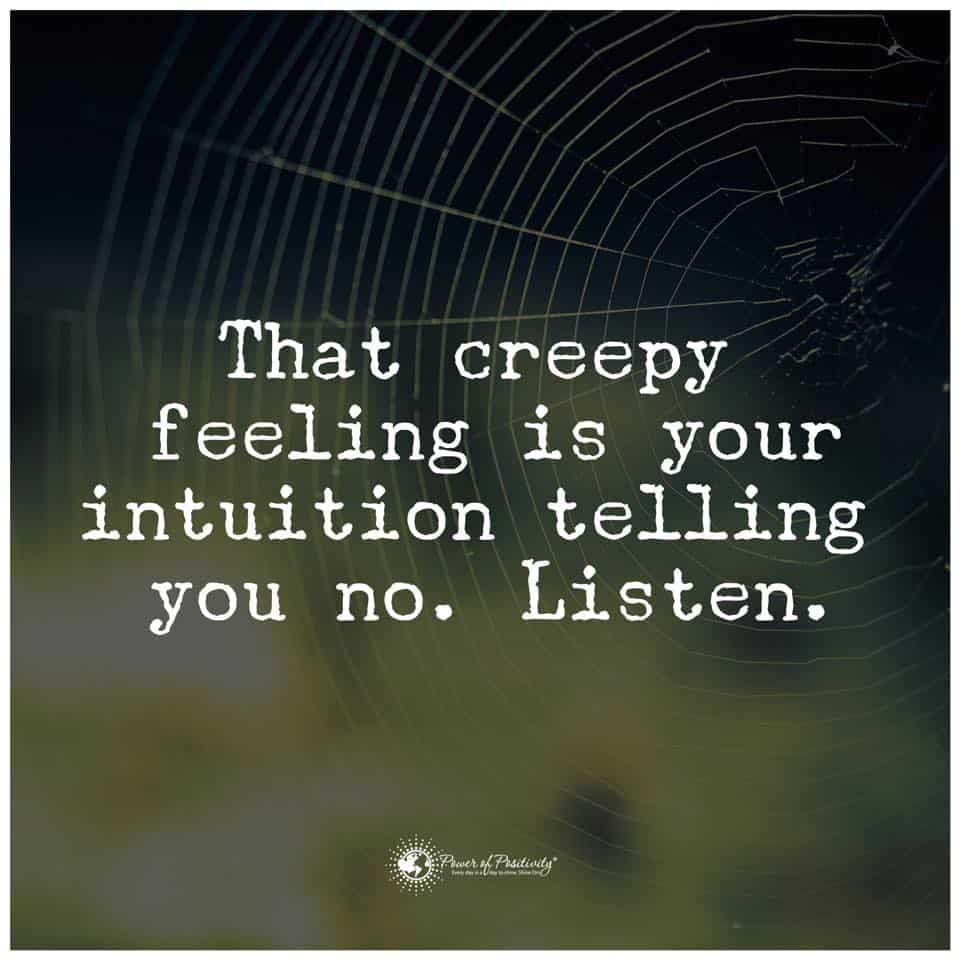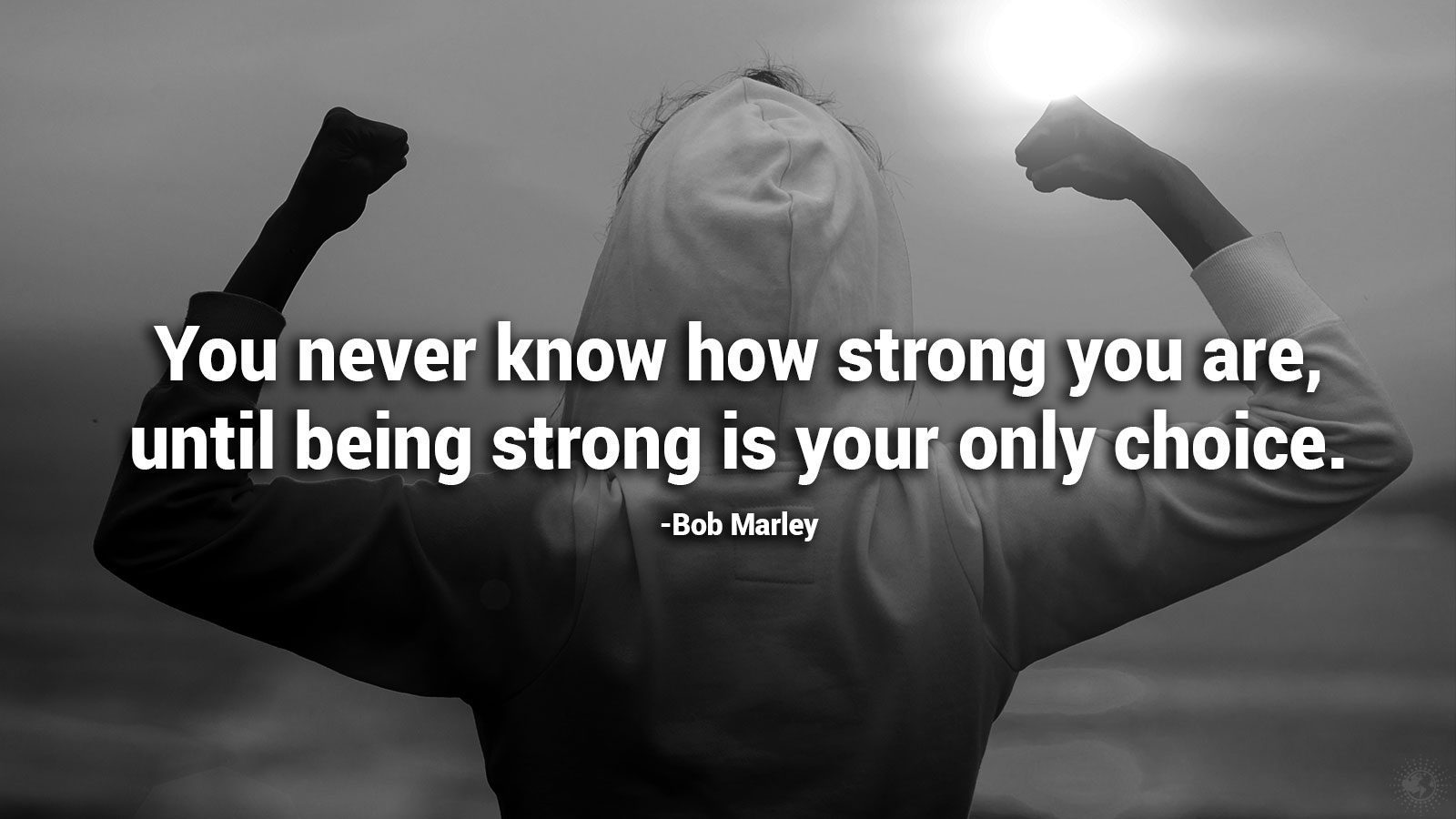Everyone is familiar with the phrase “trust your gut”. There’s merit to this, after all. Everyone has a time where they had a feeling about something, good or bad, and they followed their intuition and discovered that they were right.
This can happen to anyone, but there are times when someone’s intuition never fails. Intuition is described as a feeling in theories, abstract ideas and possibilities, rather than concrete facts and material realities of the world. Despite this, intuition is a powerful tool to people who know how to use it.
Here are some signs that you may be an intuitive person, with the ability to feel things that others may not.
10 DISTINCTIVE SIGNS OF AN INTUITIVE PERSON
“I believe in intuitions and inspirations, I sometimes feel that I am right. I do not know that I am.” – Albert Einstein
1. YOUR DREAMS ARE EXTREMELY VIVID
Most people remember bits and pieces of the dreams, the last few minutes of sleep before they wake up. However, a more intuitive person will have vivid dreams and be able to remember them clearly. Your dreams may have felt as if you were predicting the future, or you experience deja vu when a situation turned out just as you had dreamed.
2. YOU ARE AWARE OF YOUR EMOTIONS
Being attentive to the way you feel is an important part of understanding your intuition. Your emotions will manifest in the way of a “gut feeling”, unable to be ignored until you take them into account, or maybe even act on them. Awareness of your emotions is key to understanding the power of intuition.
3. YOU ARE EMPATHETIC
Not only will an intuitive person be aware of their own feelings, but they will be aware of the feelings of the people around them, as well. Someone who is highly intuitive will be able to pick up on the emotions of friends, family or complete strangers. Others will open up to intuitive people more often, as if knowing that they are aware of their emotional state.
4. YOU ARE SELF-AWARE
Intuitive people are not only aware of their emotions, but also their thoughts and actions, and how those things affect both their outlook on life, as well as the people around them. Practicing mindfulness is as large part of being self-aware. You know what you are doing, what you are thinking, and why at all times.
5. YOU ARE OBSERVANT OF YOUR SURROUNDINGS
Not only are you aware of your thoughts and emotions, but you are also aware of the things going on around you. You may be an intuitive person if you find yourself noticing little things that no one else seems to, or things that others consider unimportant, or easily dismissed.

6. YOU ARE CREATIVE
Intuitive people tend to be more creative. This creativity can be expressed in hundreds of different ways, and it will often allow an intuitive person to connect with the world and the people around them. An intuitive person’s creativity will come with deep within, someplace they can’t logically explain.
7. YOU PLAY DEVIL’S ADVOCATE
Intuitive people can understand the subtle nuances of a debate, and refuse to allow any issue to be seen as either starkly black or white. You are able to form an opinion, while also seeking to understand your opponent’s viewpoint. Intuitive people understand the complexity of all situations, and seek to share the nuance of every debate.
8. YOU TEND TO BE AN INTROVERT
People who are intuitive have an exclusive socializing pattern. Though there are times that you find yourself quite outgoing, it’s always on your terms. You enjoy connecting with people, but the best way for you to recharge is to spend time alone. You are capable of enjoying solitude without becoming lonely.
9. YOU TEND TO OVER-ANALYZE
If you are not very good at taking things at face value, you may find yourself analyzing a situation to death. You are unable to accept the simple surface answer. That’s because you know, deep down, that there’s more to it than what’s on top. Intuitive people are more prone to seeking answers beyond what’s been given to him.
10. YOU ARE AN OPTIMISTIC PERSON
Though intuition can be used to warn you of bad things and dangerous situations. Of course, that doesn’t mean that you have turned away from the positives in life. If you are able to see the silver lining and look towards the good in life, even after your intuition has warned you of something bad, you will be more able to connect with your intuitive nature.
Intuition is all about being aware of yourself, your thoughts, your emotions, and the world around you, including the little things. It’s much like a sixth sense, and not one that everyone has. If you have always dismissed these feelings as gut reactions, or paranoia, or perhaps just plain lucky guesses, you may be a powerfully intuitive person without even knowing it. However, if you find yourself checking off a lot of these experiences, you may be able to tap into that inner understanding of yourself and the world around you.









